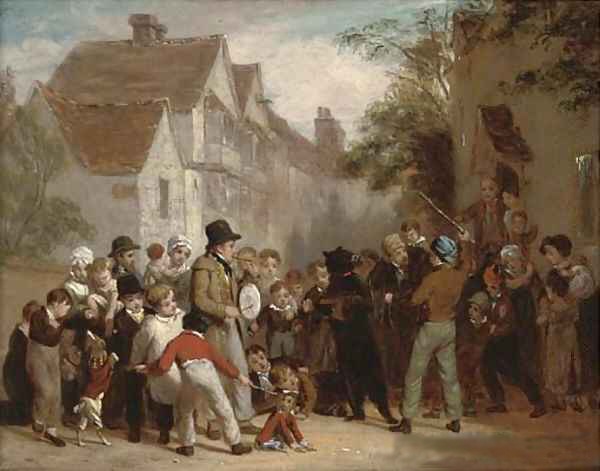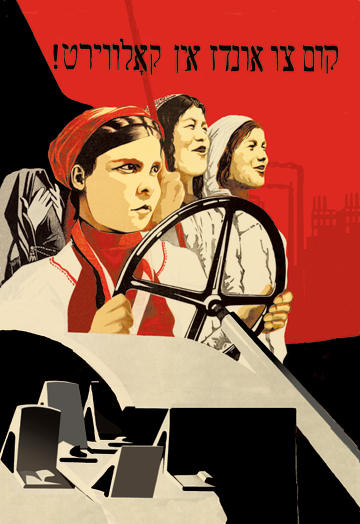January 1, 2007, was a dark day for many Gypsy families living in Bulgaria, for that was when their country joined the European Union. The livelihood of these individuals was suddenly threatened because, as a condition of membership, Bulgaria was required to outlaw the keeping of bears in captivity.
For centuries, young bears were captured by circuses and entrepreneurs from the Roma community, domesticated, and then taught to dance, perform tricks, and even imitate celebrities. While to the uninitiated observer this might seem little different than teaching an elephant to stand on its hind legs, it was undeniably cruel.

Upon capture, one or more metal rings would be driven through a bear cub’s nose, the most sensitive part of its body. Chains would then be attached to those rings and they would be taught how to dance by making them step on red-hot sheets of metal. Their owners beat them into submission and forcibly removed their teeth and claws. For food, they were given only bread, and some candy, accompanied by prodigious quantities of alcohol to ensure their passivity.
After Bulgaria joined the EU, many of these bears were rescued by the animal welfare organization Four Paws and given a home in The Dancing Bears Park, located in Belista. Though it would be impossible to return the bears to the wild—they simply had been kept in captivity too long—Four Paws hoped they would be able to teach the animals to live independently in a controlled environment. But this proved to be inordinately difficult.
Simply stated, the bears had lost their natural instincts. They had forgotten how to hibernate because their owners had made them perform year round. In addition, they had no idea how to hunt for food or attract a mate. Some even struggled to move about freely on four paws.
Teaching the bears what it was like to be free was a gradual and challenging process, one met with numerous setbacks. Eventually, most bears were able to roam freely in the park. But their freedom was constrained by an electric fence in order to keep them safe.
Despite these perfect conditions and the hundreds of thousands of dollars invested in the Park and genuine signs of progress, there is one thing Park staff members are reluctant to discuss. To this day, virtually all the bears, when they see a human, still dance. They rock from side to side, seeking to please their “audience” in hopes of receiving a reward—a piece of candy, a drink of beer, a loving caress—or to be free of pain that is no longer being inflicted.
All of this is chronicled in simple, vivid prose in Dancing Bears, a book written by the Polish journalist, Witold Szabłowski. But his story about the bears comprises only the first half of his manuscript and the second part has nothing to do with four-legged animals. Instead, it tells the story of people who were made to dance to a particular tune their entire lives and suddenly found themselves adrift when the music stopped.
Part two explores the emancipation of Eastern Europeans from totalitarianism and socialism when the Soviet Union collapsed in 1991. Millions of people unexpectedly found themselves without work as collective farms collapsed and factories were shuttered. Without guaranteed employment and party officials to regulate their lives, according to Szabłowski, they were thrust into: “a never-ending course in what freedom is, how to make use of it, and what sort of price is paid for it. We have had to learn how free people take care of themselves, of their families, of their futures.”[1]
Some were able to make the transition; many, however, were not. Decades of forced labor had robbed them of the will to work for themselves as their ancestors had done before the arrival of socialism.
In his travels, the author met Yevheniya Chemiak, an elderly woman whose husband had been employed on a collective farm. When the Soviet Union collapsed, he had been given almost three acres of arable land in Ukraine, but farming no longer appealed to him. Nor did anything else—except drinking. According to his wife, he, along with many of his countrymen, “sit in their village and whack a stick against a tree in the hope that a pear might fall.”[2] They were anxious, disoriented, and yearned for the old certainties.
Surprisingly, in recent years similar attitudes and behaviors have begun to manifest themselves in the United States, but in reverse sequence: some born into freedom have been taught, or become seduced by the idea, that they need someone to structure and direct their lives and insulate them from things unpleasant. Greg Lukianoff and Jonathan Haidt explore this development in The Coddling of the American Mind.
The premise of their book is that many members of the generation often referred to as iGen or GenZ—those born on or after 1995—have been coddled and overprotected. While the motives of those doing the protecting, such as parents and educators, may have been praiseworthy, they were premised on three fallacies: (1) Fragility: people cannot handle cognitive dissonance and opposing points of view, (2) Emotional Reasoning: you should trust your feelings, not facts and your intellect, and (3) Binary Thinking: the world is full of people who are either good or bad, with nothing in between.
These false beliefs are taught and promoted on many college campuses, which reinforce them with speech codes, trigger warnings, limited “free-speech zones,” safe spaces, and speaker disinvitations that are often preceded by protests led by students who wish to be shielded from opinions at variance with their own. These three fallacies also find receptive audiences on social media, creating a perpetual feedback loop that amplifies the individual’s anxieties and insecurities.
President Obama, after reading the magazine article from which the authors developed their book, strongly endorsed the importance of viewpoint diversity and unequivocally stated that students should not “be coddled and protected from different points of view.”[3] But his sage counsel, along with that of others, has largely been ignored by many in the academy.
The end product of such an education is often an individual who can be easily manipulated by others and who finds it difficult to manage complicated questions and challenging situations on his own. He was only taught what to think, not how to think and, therefore, is unable to grapple with complex ideas and competing points of view.
Sadly, some of the “bad ideas” discussed by Messrs. Lukianoff and Haidt can be found in Mormon culture. For years, the church elected to present a sanitized version of its history and the evolution of its doctrine, believing it unwise to discuss the disturbing episodes and peculiar teachings of the past. Members tempted to explore these topics on their own were counseled to shun “alternate voices,”[4] such as Sunstone and Dialogue, where scholars routinely analyzed and debated these subjects. And those who did not heed this admonition and, instead, wrote or spoke about questionable doctrines and decisions made by prophets and apostles were often summoned to disciplinary counsels.
When the Internet became widely available in the early 2000s, it became easy for church members to access information about those historical and doctrinal matters omitted from church curricula. According to the Deseret News, LDS scholar Richard Bushman, author of a critically acclaimed biography of Joseph Smith, alerted the church to this problem, as did others.[5] But it was slow to respond, slow to realize it had lost control of its narrative.
The problem was compounded by the poor quality of church manuals, which LDS scholar Terryl Givens—who often counsels church members struggling with questions and doubts—has described as “deplorable” and “full of errors, full of disinformation.” Although he did not believe the mistakes were deliberate, he feared that failure to correct them promptly would only compound the feelings of betrayal experienced by some members.[6]
The publication by the church on its website of essays addressing these difficult subjects and the recent incorporation of some of this material in the Seminary and Institute programs have helped address the problem. Nevertheless, the consequences of its original misguided portrayal of church history and the slowness with which it corrected that mistake have been serious. For some of those reared on a watered-down version of church history, the content of the essays proved to be an irreparable shock. Had they not been so fragile, had this information been shared and discussed in its historical context when they were young, their crisis of faith likely would have been averted.
A few years ago, Elder Ballard acknowledged that the church’s curriculum during this time “did not prepare students for today.”[7] And while, as noted, the church has taken some steps to improve the way members, especially the youth, are taught its history, the same cannot be said regarding its approach to the scriptures.
We have neglected to teach members the importance of genre and historical and cultural context when studying the scriptures. Similarly, we have failed to demonstrate how differences in theological opinion and scriptural interpretation should be respected and appreciated. Worst of all, we have not acknowledged that every sacred text is written by, and filtered through the mind of, an imperfect individual whose biases and philosophies inevitably influence the way he communicates divine revelation.
But recently there has been one very positive development: the new Come Follow Me manuals. It isn’t that the substance of the new manuals is noticeably better than that of its predecessors; rather, it’s the program’s emphasis on each member’s responsibility for his own learning that is encouraging.
The focus is now on independent study in the home, and members are no longer subject to the institutional constraints of the classroom. They decide what and how to study and how to teach their families. In addition, study groups have begun to flourish along with websites that engage seriously with the scriptures, exposing members to different ways of reading a text and directing them to other valuable resources to advance their learning.
By accepting responsibility for our own learning and spiritual and intellectual welfare, we not only become more resilient church members and citizens, we discover that life and history are complex and that understanding and appreciating this complexity is essential to our progression. We learn to welcome the clash of ideas and delight in discovering the errors in our thinking those arguments reveal, thereby bringing us closer to the truth. Most important of all, we appreciate the need to pursue our quest for moral clarity with those around us in humility and with a generous, unpretentious and humorous spirit.
[1] Witold Szabłowski, Dancing Bears: True Stories of People Nostalgic for Life Under Tyranny, (Penguin Books: New York: 2014), p. xv.
[2] Ibid, p. 136.
[3] Greg Lukianoff and Jonathan Haidt, The Codling of the American Mind: How good Intentions and Bad Ideas are setting up a generation for Failure, (New York: Penguin Press: 2018), p. 11.
[4] Dallin H. Oakes, “Alternate Voices,” General Conference, April, 1989.
[5] Michael De Groote, “Mormons opening up in an Internet World,” Deseret News, (February 1, 2012).
[6] “An approach to Thoughtful, Honest and Faithful Mormonism,” (Mormon Stories #291)
[7] M. Russell Ballard, “The Opportunities and Responsibilities of CES Teachers in the 21st Century,” Address to CES Religious Educators, February 26, 2016.



I read “The Coddling of the American Mind” last year and was mesmerized by its wisdom. I saw the parallels as well with Mormon culture. One that particularly niggles is this idea that people are “good or bad”. I see this binary thinking when Mormon’s talk about “the World” or “non-members” and no the softer euphemism of being “off the covenant path.”
I love your closing paragraph so much. It makes me think about Fowler’s Stages of Faith. I would love to see our faith grow to nurture people through to the final stages of faith as its supreme goal. It seems like we are hopefully taking steps in the right direction.
S Barnhart, your point about the “good and bad” dichotomy prevalent in our community is a good one. Among the many negative consequences of such thinking is that it blinds us to what we can learn from other religions. (I love the word “niggles,” by the way.)
And Fowler’s Stages of Faith is one of my favorites. It would be nice if more people read it and allowed his ideas not only to influence their thinking about spiritual matters but political ones as well.
An awfully lot to ponder here. It just shows that living on earth with free agency and ability to make our own decisions and come to our own conclusions is a very difficult challenge we accepted when we rejected Satan’s plan. Sadly we often act like and feel it is more comfortable living under Satan’s plan where we aren’t challenged to come to our own conclusions and interpretations and make our own choices. We would rather delegate that right to someone else. That is why seeking for the “pure love of Christ” is so important and so consuming.
Some good food for thought, once again. I may draw some somewhat different conclusions on certain points, but they are all worth considering. Like S Barnhart, I really like the last paragraph. In particular: “Most important of all, we [would] appreciate the need to pursue our quest for moral clarity with those around us in humility and with a generous, unpretentious and humorous spirit.” Words to live by.
Karen, I have used that same metaphor (“more comfortable living under Satan’s plan”) myself on several occasions. Members sometimes act as if they prefer that approach and leaders are sometimes all too willing to accommodate them. Elder Packer spoke on this subject on more than one occasion, sometimes with remarkable candor. Some of his views I strongly disagreed with this, but on this issue we were on the same page.
Everyone’s different but I, for one, relish the messiness and complexity of life. If I were to do die and suddenly be given all the answers to every question—no more paradoxes to wrestle with, no more mysteries to solve—I would know in an instant that I had been condemned to Hell.
Great to hear from you, Jeff!
You and I have chatted about these subjects in the past and I know your perspective differs from mine to some degree, and I appreciate and respect that. (Hey, what else could I say about your point view after the final paragraph of my essay!?)
One of the reasons I chose an image of Socrates for the landing page of my website was because of the story about his friend who asked the Oracle of Delphi to reveal the name of the wisest man in Athens. She answered: “Socrates.” He initially rejected this idea, but after consulting several of his fellow citizens who pretended to know what was truly worthwhile in life, he realized they didn’t know what they were talking about. So maybe the Oracle was right. Perhaps he was the wisest man in Athens because he alone was prepared to admit his own ignorance rather than pretend to know something he did not.
The older I become and the more I read, study and learn, the more I realize that I really know nothing at all. Though this does not make me wise, once in a while (though not often enough) it makes me humble.
Love your two responses. Especially “If I were to do die and suddenly be given all the answers to every question—no more paradoxes to wrestle with, no more mysteries to solve—I would know in an instant that I had been condemned to Hell.” I needed a good laugh in this crazy COVID w0rld.